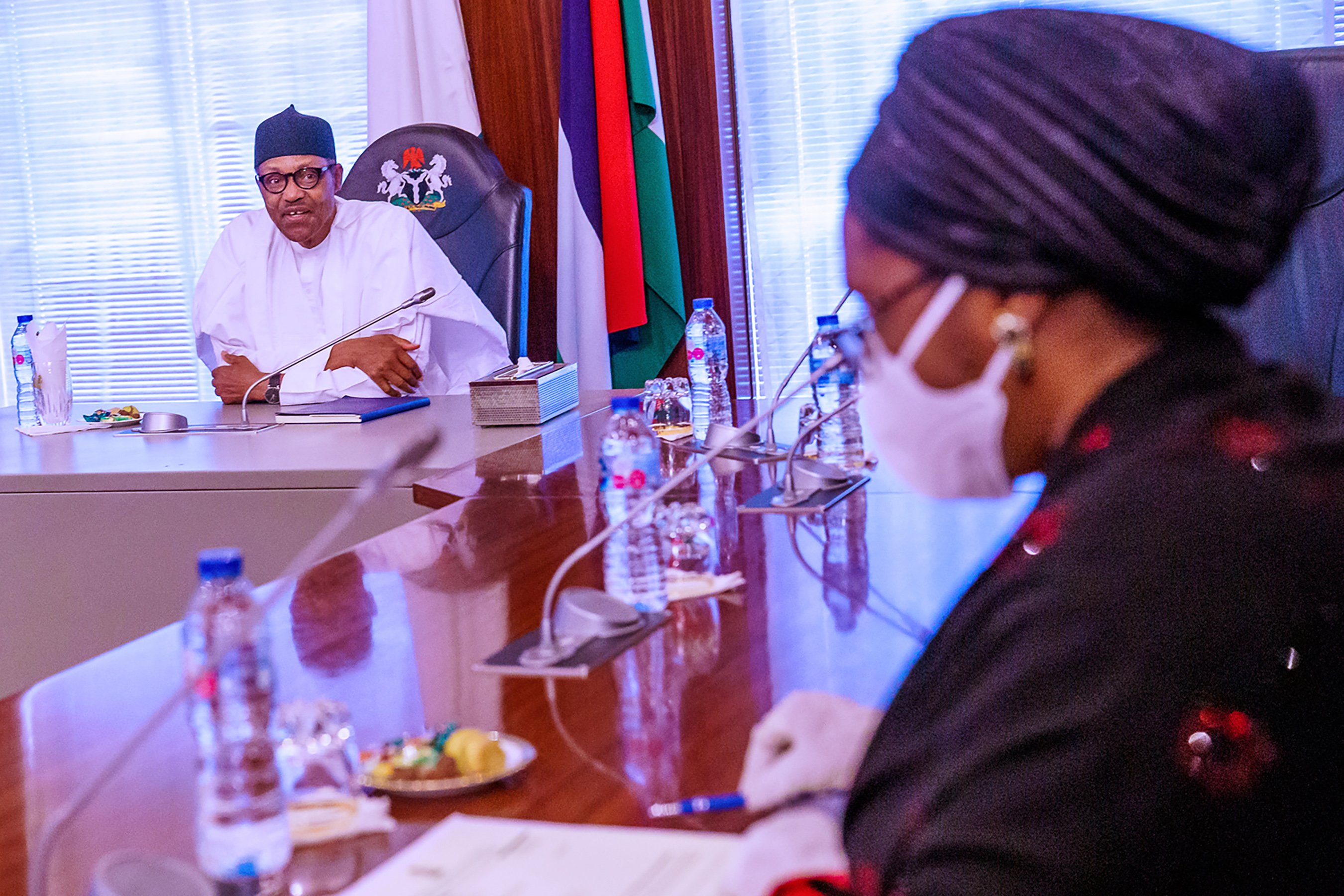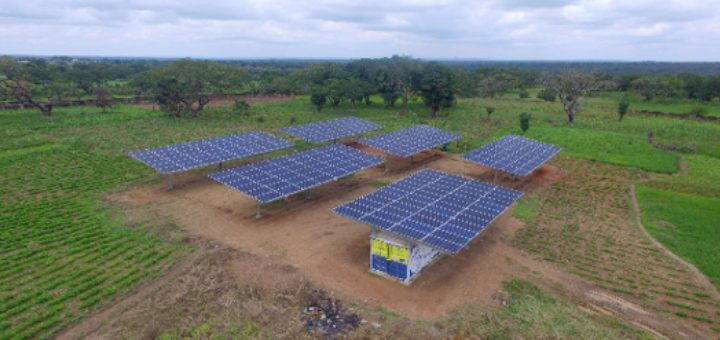PRESIDENT BUHARI METS CORONAVIRUS COMMITTEE ON THE ECONOMY B. President Muhammadu Buhari receives briefing from the Minister of Finance, Hajiya Zainab Ahmed during a meeting with the Presidential Committee to Review the Impact of Coronavirus on the Economy held at the State House Abuja. PHOTO; SUNDAY AGHAEZE. APRIL 2 2020
The federation’s revenue from the oil and non-oil sector crossed N1 trillion for the second month in July.
Details of the revenue report from the office of the accountant-general of the federation seen by TheCable showed that the country raked in N1.26 trillion for the month.
The figure represents a N36.9 billion increase from the N1.22 trillion revenue recorded in June.
According to the breakdown, Nigerian Upstream Petroleum Regulatory Commission (NUPRC) raked in N292.8 billion, while the Nigeria Customs made N190.26 billion for the month.
Advertisement
On taxes, revenue from the oil sector to the Federal Inland Revenue Service amounted to N191.7 billion, while the non-oil sector contributed the highest for the month at N444.65 billion.
For value-added tax (VAT), FIRS raked in N190.26 billion down from N208.15 billion recorded in June 2022.
For the seventh consecutive month in 2022, the Nigerian National Petroleum Company (Limited) failed to contribute revenue to the federation purse as subsidy payments eroded oil gains.
Advertisement
In the first half of 2022, TheCable reported that petroleum subsidy claims surpassed oil and gas revenue from crude sales by N210 billion.
Within the period, NNPC recorded N2.39 trillion as gross revenue from oil and gas sales receipts and N2.6 trillion as subsidy claims. It, however, deducted N1.59 trillion to cover part of the subsidy costs.
Further analysis showed that out of the 1.26 trillion revenue for July, the federation account allocation committee (FAAC) shared N954.09 billion among the three tiers of government — after statutory deductions.
The federal government received N406.610 billion, states received N281.342 billion, and the local governments received N210.617 billion.
Advertisement
According to World Bank, Nigeria’s revenue-to-gross domestic product ratio is weak and one of the lowest in the world.
Stakeholders have urged the federal government to block loopholes and increase revenue generation and collection.
Last month, ‘Laoye Jaiyeola, chief executive officer of the Nigerian Economic Summit Group (NESG), said the government’s expenditure in the country had grown by 105 percent since 2015, while revenue increased by 15 percent.
Advertisement
Add a comment






